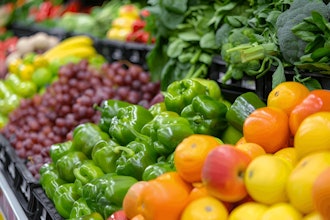SEATTLE (AP) — Both sides are intensifying their fight over a statewide initiative that mandates the labeling of genetically engineered foods, rolling out the first television spots Monday in a campaign expected to cost millions of dollars.
Money is pouring in from many of the same donors who lined up on opposite sides of a similar food labeling measure that failed in California last year.
Opponents of Initiative 522 have so far raised $12.1 million, with $4.8 million from Monsanto and $3.4 million from DuPont Pioneer, according to the latest reports filed with the Washington state Public Disclosure Commission. Both companies were top donors in the effort to defeat California's Proposition 37.
The Yes on 522 campaign has raised $3.4 million, with nearly $1 million from Dr. Bronner Magic Soaps. Other top donors include the Organic Consumers Fund and Mercola Health Resources.
The measure before Washington voters Nov. 5 would require food and seeds produced entirely or partly through genetic engineering and sold in Washington grocery stores or other retail outlets to be labeled as such. For example, processed foods such as chips, cold cereal and soda drinks containing genetically modified ingredients would require a label. Foods sold in restaurants are exempt. Meat and products from animals that are genetically engineered would require a label, but meat and dairy products from animals that only eat genetically modified feed would not.
Supporters say consumers have the right to know what's in the food they are buying.
"This is about giving grocery shoppers more information about their food," said Elizabeth Larter, spokeswoman for the Yes on 522. "We label for sodium, sugar, trans fat ... This is just another piece of information."
Larter added that food manufacturers are constantly updating their packaging and that "this is just a couple more words on the package."
Opponents say the measure would give consumers misleading information, create costly burdens for farmers and businesses and increase grocery costs.
Dana Bieber, spokeswoman with No on 522, says the measure allows too many arbitrary exemptions and that consumers can already seek out organic products or non-GMO labels.
"We're going to use our resources to get our message out to voters," she said.
A statewide poll earlier this month found that the measure has strong support. An Elway Poll of 406 registered voters found 66 percent supported the food-labeling measure, while 21 percent were opposed. The survey conducted Sept. 3-5 had a margin of error of plus or minus 5 percent.






















